News
Follow the news of the REAB Consortium and the market, stay up to date.

The main source of information about businesses for sale, requests for business purchase, investment offers and requests is REAB catalog ( https://reab.pro/en/catalog ). Today it has 4 sections:
- Business for sale — https://reab.pro/en/catalog/business-for-sale
- Demand for business — https://reab.pro/en/catalog/requests-for-business
- Business for investment — https://reab.pro/en/catalog/business-for-investment
- Investors for business — https://reab.pro/en/catalog/investors-for-business
In addition, on the main page of our website there is a catalog of new products - 18 of the most recent lots and requests from all sections of the catalog.
In all 4 sections of the catalog there is a advanced search for lots with a variety of filter conditions. Use them to find the required lots or queries in the required industry, country, price range, etc.
If you are registered on the website (this can be done here — https://reab.pro/en/register ), you will have additional convenience: you can save up to 5 different searches in each section for yourself, in order to quickly return to their results. Moreover, you can subscribe to the results of any saved search — and then the REAB website will automatically search for you using these conditions and send you the results daily by email, to the address specified in your profile.
In addition, all new lots and requests in the catalog are published the next day in our social networks. All links to our social networks are posted in the footer of each page of the website, and in addition, we will provide these links here.
For English-speaking readers, these are:
- VKontakte - https://vk.com/reabpro_eng
- Facebook - https://www.facebook.com/reab.english/
- Telegram - https://t.me/reab_pro_eng
- X.com - https://x.com/ReabProEng
- LinkedIn - https://www.linkedin.com/in/reab-pro/?locale=en_US
In addition to lots, we publish content updates on the site in social networks - news and new articles. These platforms are also another convenient tool for communicating with us.
Join and subscribe!

The Shanghai Cooperation Organisation (SCO) members have voted to reorganise the status of the three non-full member categories of “Dialogue Partners,” “Observers,” and “Permanent Guests” into one single category: “SCO Partners.” The move simplifies categories and makes the group easier to administer.
This means that Afghanistan, Mongolia and Turkmenistan all become partners, as does the ASEAN trade bloc, which already included three dialogue partners (Cambodia, Laos, and Myanmar) and effectively adds Brunei, Indonesia, Malaysia, the Philippines, Singapore, Thailand and Vietnam into the SCO mix. ASEAN is represented at the SCO by its Secretary-General, Dr. Kao Kim Hourn, and has been attending SCO events since 2017.
Also elevated to partner status is the Commonwealth of Independent States (CIS), although its individual members were all previously involved either as full members or dialogue partners. Having a singular bloc voice, represented by its General Secretary, Sergey Lebedev, is also useful in having one voice representing the interests of all the SCO states. Interestingly, to reciprocate, the SCO itself became an observer to the CIS. Following the 2025 Tianjin summit, the Chairmanship of the SCO has passed to Sadyr Japarov, the President of Kyrgyzstan. Each full SCO member state holds the chairmanship for 12 months.
In addition to this, the United Nations, previously recognised as a permanent guest, is also elevated to the status of partner. The UN is represented by its Secretary-General, Antonio Guterres, thus retaining a link between the SCO and all other nations of the world and, in particular, the United States.
With the SCO bloc clamouring for reform at the UN, Guterres’ return to New York to discuss developments at the SCO Tianjin summit is bound to result in knock-on effects as the status of the United Nations itself during a time when its global credibility is being called into question. As the Kazakh president, Kassym-Jomart Tokayev, himself previously a director-general of the United Nations in Geneva, stated at the SCO summit, “In the current difficult geopolitical realities, we must support the UN as a universal and independent organisation. At the same time, there is a need to reform the United Nations, primarily its key body, the Security Council. We are fully aware of the complexity of such a reform, but there is no other way. If the current generation of leaders refuses to fulfil this task, it can definitively and irrevocably undermine the confidence of states in the UN.”

The Eurasian Agro-Express service, which was originally designed to service the Chinese markets and Southeast Asian markets with high-speed deliveries of perishable goods from Russia and the Eurasian Economic Union, could be extended.
Andrei Slepnev, the Minister for trade at the Eurasian Economic Commission (EEC), stated at the fourth Eurasian Economic Forum in Minsk on Friday (June 27) that “The project initially focused on Southeast Asia and the Chinese market, but today its map is expanding. Practical work has begun on the North-South corridor – a promising direction for agricultural products. This refers to Iran as well as other countries in the region. For example, it would be interesting to include the United Arab Emirates in the Eurasian Agro-Express project. Work is also underway with Mongolia – a close partner of the Eurasian Economic Union and a transit country towards China.”
The Mongolia route would provide competition for the Mongolian consumer market, which is mainly served by China. Products would originate from Russia and Kazakhstan.
Looking towards the Middle East, the EEC have already held negotiations with Iran in March as part of the Eurasian Agro-Express project, with Vladimir Serpikov, the director of the EEC Trade Policy Department, saying “We proposed with Iran the formation of green corridor principles for transit shipments under the project, increasing the cargo base along the Iran-EAEU route, and raising awareness among Iran’s business community about the project and its opportunities.”
The extension of this route can then feed other Middle Eastern destinations and provide competition for local markets. Products from this route would come mainly from EAEU members Armenia, Belarus and Russia.
The EEC and Iran have agreed to consider these issues at meetings of the transport and transit cooperation subcommittee, which will be established as part of implementing the complete Iran-EAEU free trade agreement, which is still undergoing some tweaks despite being effectively in force.
The initiative to implement the Eurasian Agro-Express project for accelerated rail and multimodal transport was approved by the Eurasian Intergovernmental Council in February 2022. The intent is to develop regular mutual supplies of agricultural products and food, as well as export shipments to Asian and European destinations. In February 2023, the Intergovernmental Council expanded the project to include International North-South Transport Corridor (INSTC) routes.
The Eurasian Economic Union includes Armenia, Belarus, Kazakhstan, Kyrgyzstan and Russia and fills a geographic space between Eastern Europe and Western China. It is a Free Trade bloc and also has free trade agreements with China, Iran, and Vietnam, while Mongolia is about to agree a deal, with India and Indonesia expected to do the same later in the year.
Over three years of implementation, the project has transported over 1.5 million tonnes of perishable cargo, more than half of which was refrigerated. That will now increase.

Free Trade Agreements between the Eurasian Economic Union (EAEU) and the United Arab Emirates (UAE) and Mongolia will be signed in Minsk in late June, Belarusian Deputy Foreign Minister Pavel Utyupin has said. Belarus currently holds the chairmanship of the EAEU, which also includes Armenia, Kazakhstan, Kyrgyzstan, and Russia.
Utyupin was quoted in Belarus Segodnya as saying, “It is a great honor to the Republic of Belarus that agreements with such significant trade partners of the EAEU as the United Arab Emirates and Mongolia will be signed in Minsk on June 27, 2025, after the meeting of the Supreme Eurasian Economic Council. The signing of these agreements will be good for all sides. As for Belarus, the agreed tariff concessions cover more than 90% of Belarus’ bilateral trade with Mongolia and the Emirates, which will further strengthen and develop our trade-economic ties with these countries.”
He added that a proposed EAEU free trade agreement with Indonesia is in a high degree of readiness. “There is hope that the agreement will be signed before the end of this year,” Utyupin said, while talks on signing a trade agreement with India are expected to intensify in the near future. The bloc has an additional FTA with Iran, Serbia and Vietnam.
It was reported that the EAEU member states are also working with the Eurasian Economic Commission to approve new prospective partners in the trade talks. States and integration associations from Southeast and South Asia, the Middle East, and Africa are all now under consideration.
Utyupin said, “A decision on the start of the talks has not been made yet; I cannot name specific countries. But I can say precisely that we approach selection of trade partners very carefully; we conduct a comprehensive analysis of trade flows and international transport corridors, and we forecast benefits and potential risks to all five member states because trade agreements are eventually aimed at further strengthening the Eurasian Economic Union.”

Soven 1 Holding (UAE), the majority shareholder of Belarus’s Priorbank, plans to buy out the Belarus State Property Committee equity of 6.31% of the bank’s shares. The decision is of interest as it implies there is significant unrealized value in shares of businesses operating in sanctioned countries and that there are investors prepared to take on Western political risk.
Soven 1 Holding had purchased 87.74% of Priorbank and its subsidiaries from Austrian-based Raiffeisen Bank International AG (RBI) in September last year. This came after RBI came under significant US and EU political pressure to divest its Russian and Belorussian businesses. RBI had operated in Belarus since 1989 and in Russia since 1996. Priorbank has billions of dollars of assets and remains profitable.
The European Central Bank ECB) had ordered RBI to accelerate its exit and reduce its balance sheet in Russia by 65% by 2026. Most of RBI shareholders are Austrian and Eastern European institutions, as well as publicly traded shares. They have had to take haircuts on the true valuation of Priorbank in order to satisfy the ECB.
The decision to sell the Belarus state-owned shares was made at Priorbank’s shareholder meeting on May 28. The bank has not disclosed further details.
The Belarus economy is growing at a rate of 2.8% per annum and has a debt-to-GDP ratio of 24%. Per capita income (PPP) is about US$32,000. The Belorussian economy is currently outperforming its eastern European neighbours. The average EU GDP growth rate expected this year is 0.7%. In 2024, Belarus’s key trading partners included Russia, China, the UAE, Poland, Germany, Kazakhstan, Turkiye, Italy, Brazil, Uzbekistan, India, Azerbaijan, and Lithuania.
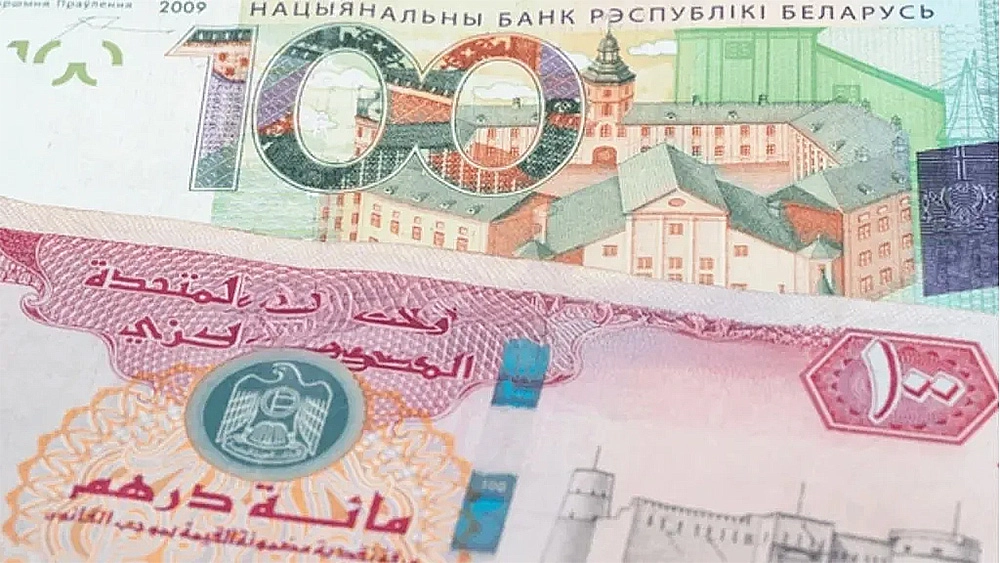
Tags:
Russian Railways (RZD) sees potential to extend the International North-South Transport Corridor (INSTC) to Africa and is also studying railway projects in a number of African countries, RZD first deputy CEO Sergei Pavlov has stated. He was speaking at the State Duma during a meeting of the expert council for the development and support of comprehensive partnership with African countries.
Pavlov said that “Given the potential of developing trade with African countries, we see prospects for the further development and extension of the International North-South Transport Corridor to Africa with the creation of the appropriate transport infrastructure. We are prepared to actively get involved in this work with interested Russian operators and logistics companies.
“In addition, we are currently studying opportunities to implement projects to build and modernize railway infrastructure in certain countries, namely Burkina Faso, Ghana and South Africa, and we’re also waiting for the normalization of the situation in Libya. In this area we’re prepared to offer African partners the whole range of services, from feasibility study to construction and equipment supplies. Of course, the issue of financing and ensuring mutual settlements is extremely important. But here we’re working with our specialized Russian agencies and institutions in the support of foreign economic activities.”
The INSTC connects northern Russia with countries on the Persian Gulf and Indian Ocean through Russia, the Caucasus and Central Asia. Russia, Iran and India signed an agreement on the creation of this multimodal corridor in 2000 and now there are 12 participating countries. The corridor includes through routes: the western route along the western coast of the Caspian Sea, the eastern route along the eastern coast of the Caspian and the trans-Caspian route across the sea.
Connecting Africa to the INSTC would involve multimodal support including maritime services to connect to African railway networks. Africa itself is developing a Pan-African railways network that is expected to unite most of the continent. This consists of several major lines, and is expected to be completed by 2035. China’s Belt & Road Initiative and its investments into Africa have been responsible for much of the infrastructure development thus far, and especially on Africa’s Northern and Eastern coasts.
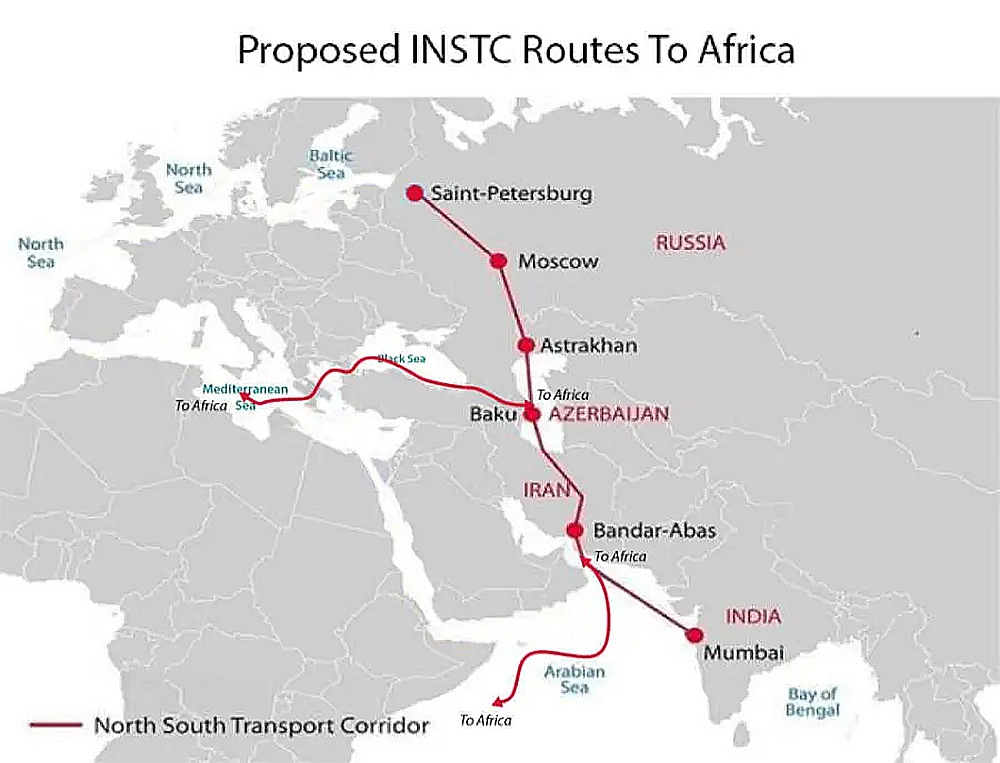
Tags:
Last week, a meeting of REAB representative was held in Istanbul, the largest city of the Republic of Turkiye. Member of the Board of the REAB Consortium Ilya Pashchenko, who also acts as REAB representative in Turkiye and the Middle East, held talks with Mr. Yasin Uygur, Head of International Cooperation and Projects Unit in the International Relations Department of the Istanbul Chamber of Commerce. REAB’s work model, catalog and possible areas of cooperation were presented.
In turn, Mr. Uygur spoke about the areas of work and capabilities of the Istanbul Chamber of Commerce and its department. The parties also touched upon the topic of global economic turbulence, the problems facing Russian and Turkish businesses in developing cooperation in this regard, and discussed the possible interest of entrepreneurs from both sides in acquiring assets and existing businesses in each other’s countries.
The parties agreed to continue working contacts and interaction in the future. REAB is also invited to participate in events held by the Istanbul Chamber of Commerce.
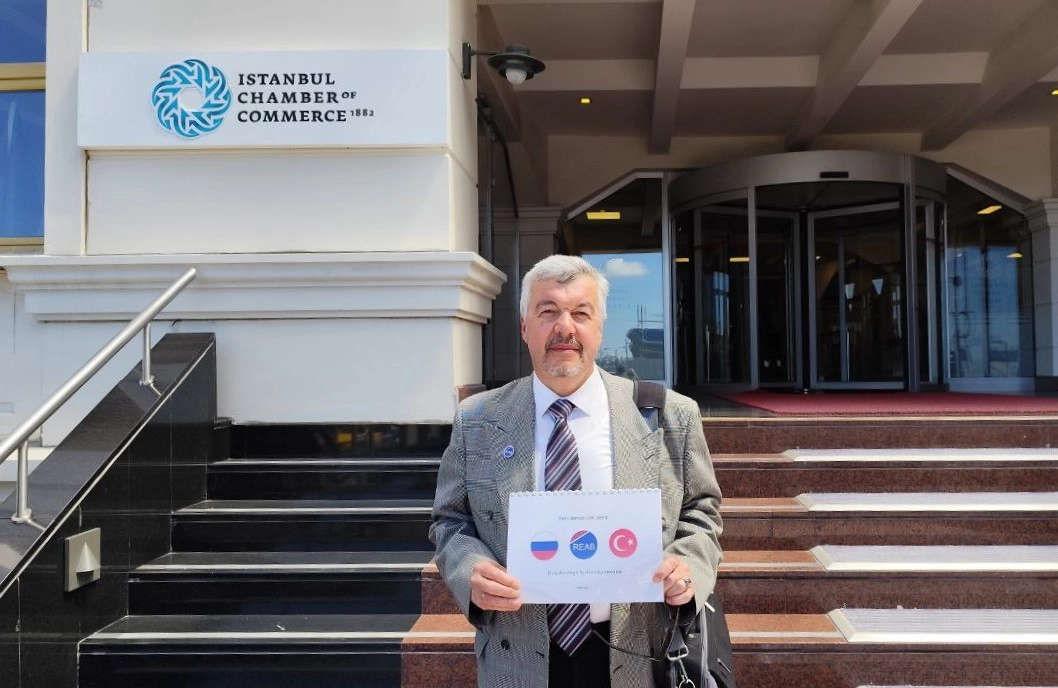
The Central Bank of Russia has set the minimum annual income threshold for obtaining the status of a Qualified Investor at ₽12 million (@US$150,000) according to Mikhail Mamuta, Head of the Russian regulatory body for the Protection for Consumer Rights and Ensuring the Availability of Financial Services. He was speaking on the sidelines of the NAUFOR Russian Stock Market 2025 conference.
The Qualified Investor status must be accompanied with educational criterion, an academic degree, or by passing a complex test.
QI Status
In order to obtain the status of a “Qualified Investor” in Russia, an application must be submitted to a broker, management company or trustee. From 2025, similar circumstances will also apply to forex dealers. The application the intermediary company requesting the investor to complete should be accompanied by documents confirming the right to getting such status. There is currently no unified register of qualified investors, meaning Russian brokers must validate and do their due diligence on prospective individuals.
To provide safeguards, a professional intermediary that allows a transaction with a complex instrument to be conducted by an unqualified investor may be deprived of its business license. If a stock market participant obtained the status unlawfully, conducted a transaction with an instrument of increased complexity and suffered a loss, they may demand compensation for financial losses from the broker. The broker is obliged to repurchase assets at their purchase price and compensate for the withheld amounts of transaction commissions. If the reason for the unlawful assignment of the status is the provision of false information or forged documents by the investor, any losses will not be reimbursed.
Russia’s Savings Market
The domestic Russian investor market has acquired a substantial financial pool of investment grade capital due to it being essentially cut off from Western financial services. Giving that capital the relevant outlets to help finance and develop the Russian economy is a key domestic strategy, as Russia continues to develop infrastructure projects on a national basis to assist with the pivot to the global south and non-Western markets. Many of these are Russian domestic projects, while others are key cross-border infrastructure requirements, such as infrastructure with China for example. Russia is keen to get Russia’s substantial private capital into financing its national development, such as via stock market listings.
Russian domestic savings, measured by the gross national savings rate, are forecast to increase between 2024 and 2029, averaging 28.95% in 2029 despite recent fluctuations. This suggests a trend of increased savings within the Russian economy. Additionally, household savings as a share of disposable income have shown a stabilization in savings behaviour, alongside increased attractiveness of bank deposits and real estate.
To compare, the current gross national savings rate in the EU is currently 12.7% and in the United States 17.2%. Russia’s gross national savings rate was 30.4% in September 2024.
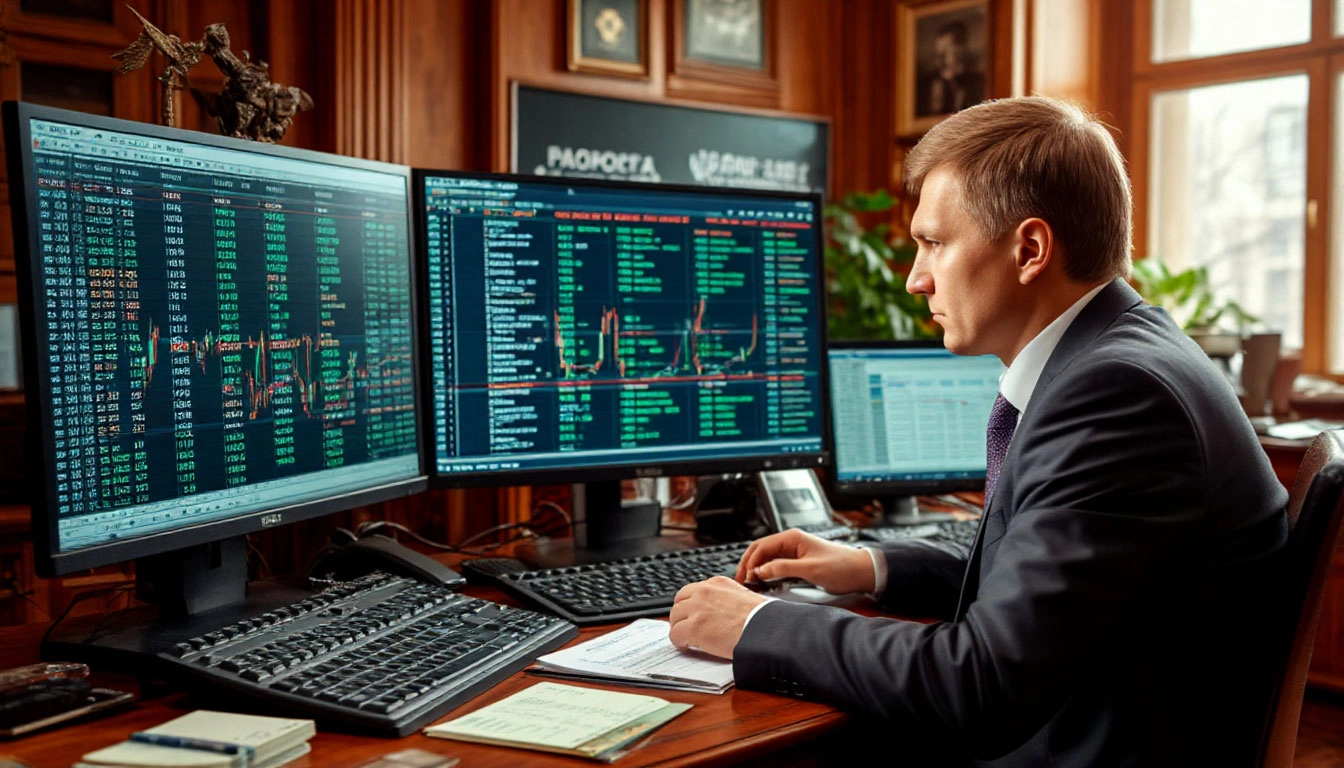
Tags:
On March 27, 2025, the Ural Chamber of Commerce and Industry held a ceremonial reception for new members, among whom we were. At the same time, REAB became a member of the Chamber of Commerce and Industry of the Russian Federation. We expect that this membership will give us new opportunities for business development.
Along with the presentation of membership cards, we were given a detailed tour of the chamber, told what its various divisions are doing and how they can be useful to business. We immediately outlined ways of mutual cooperation in several areas related to both the administrative capabilities of the CCI and its international activity. The Ural CCI is not just a regional chamber, it is one of the three largest, most developed and influential chambers in Russia.
We would like to thank our colleagues from the Ural CCI for the excellent organization of the event. And for our part, we plan to begin interaction and joint work — now as members of both chambers - this week.
For reference: unlike a number of other countries, in Russia membership of companies in chambers of commerce and industry is voluntary, not mandatory. And therefore it is an indicator of the status of the business, its reliability, integrity and good reputation at the administrative level.
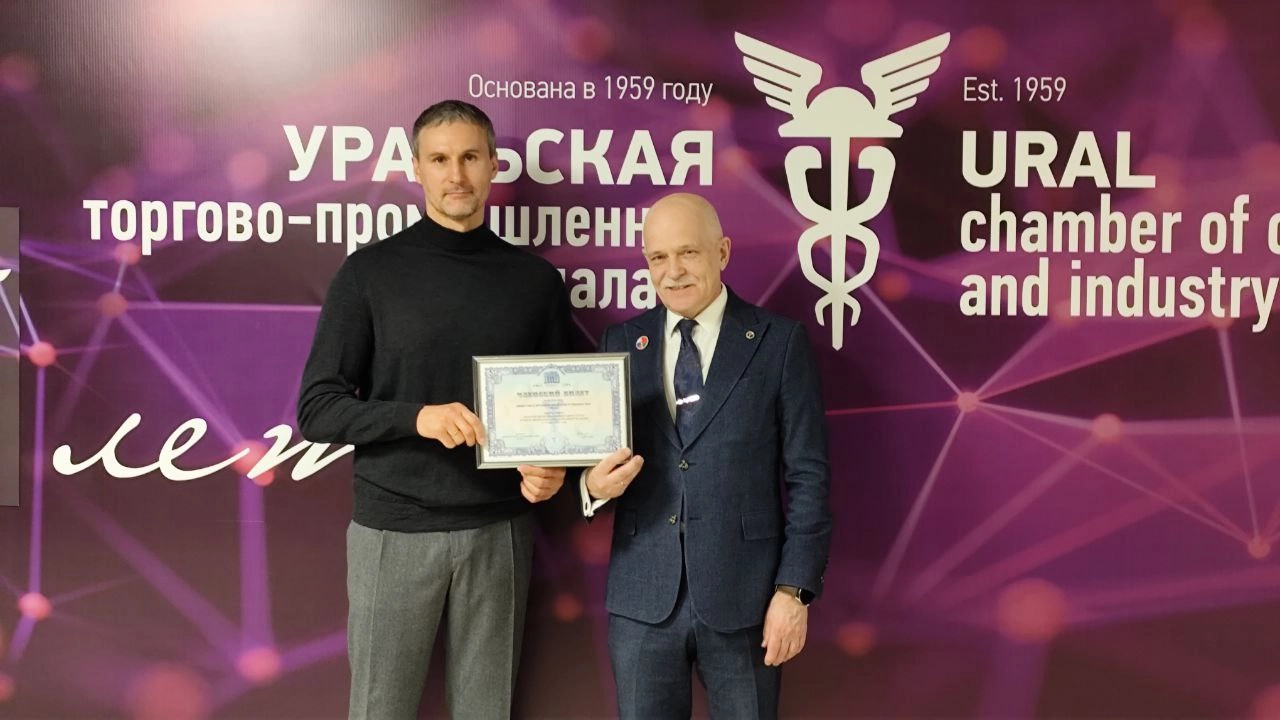
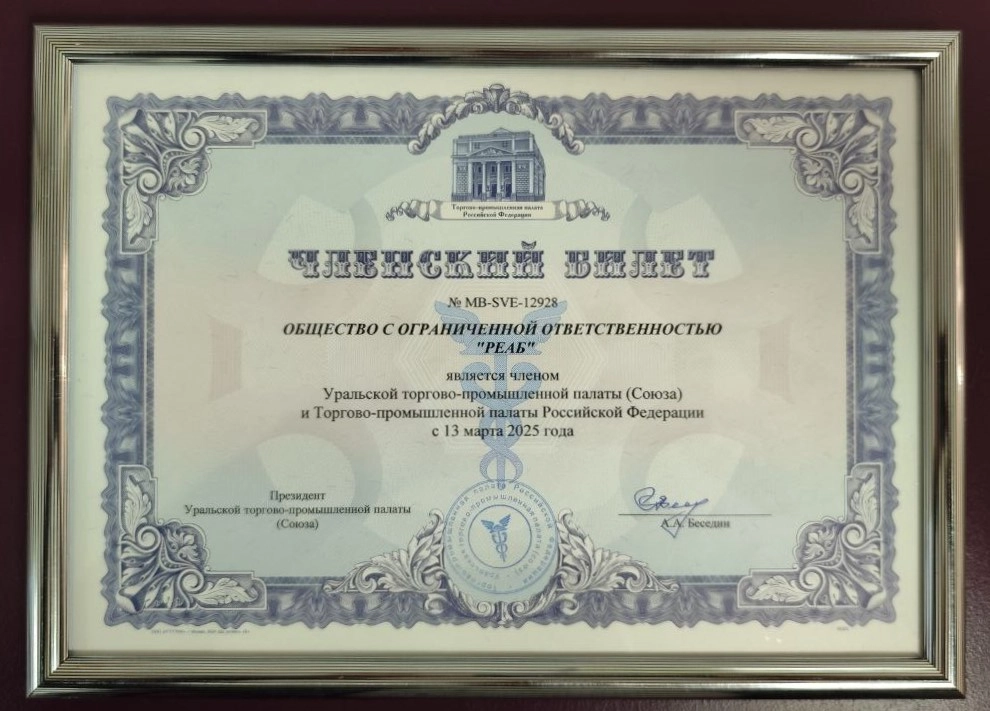
Tags:
Trade between Russia and the African continent increased to a record of US$24.5 billion, marking a new peak in economic relations between the two regions, as Russia has been making increasing inroads into Africa and European powers slowly withdraw.
Despite economic obstacles and western sanctions, Russia and Africa are finding new ways to support their growing trade. This includes developing efficient logistics channels and adopting alternative financial systems that are now purpose designed to minimize the impact of external interference.
Of the US$24.5 billion, according to Russia’s Federal Customs Service, Russian exports to Africa totalled US$21.2 billion, an increase of 43% in value over 2023 data. Data from the Russian Export Centre (REC) shows that key exports included machinery, grain, and hydrocarbon fuels, essential resources for many African economies. Russia’s main trading partners in Africa include Egypt, Algeria, Senegal, and Morocco, with Egypt alone accounting for 28% of Russia’s total exports to the continent.
Key to this has been the Russia-Africa Summit, the second of which was held last year and at which President Vladimir Putin emphasized Moscow’s desire to build stronger political and business connections with African countries.
These figures compare with Russia’s exports for example to Germany, which reached US$7.67 billion in 2024. Simply put, Russia’s trade with Africa is nearly 3.5 times more valuable than it is with Berlin.
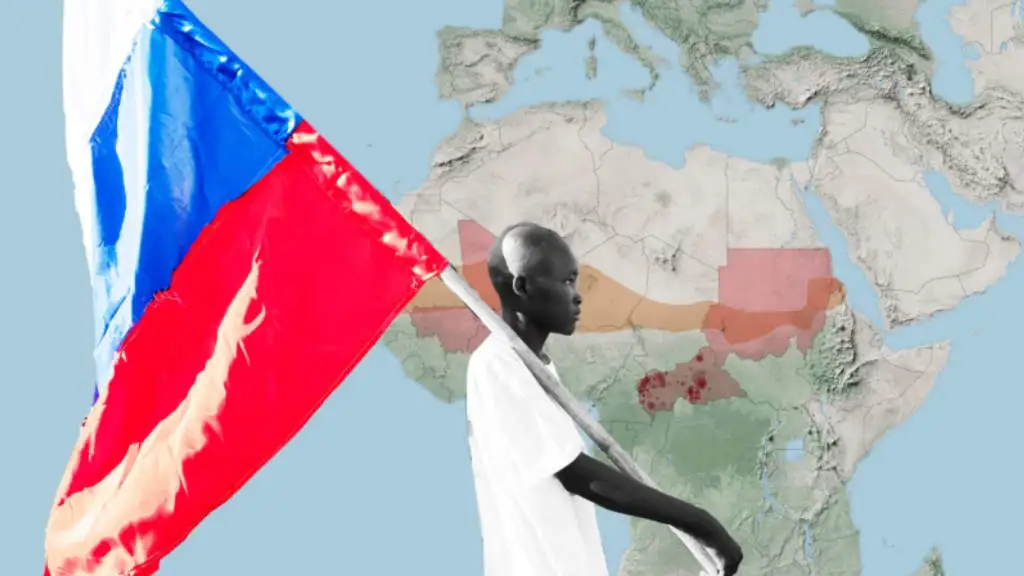
Tags:
The Eurasian Economic Union (EAEU) may launch negotiations on a free trade agreement (FTA) with India in 2025. Deputy Economic Development Minister Vladimir Ilichev said
that “this discussion has been ongoing for a long time. Moreover, on our side, at the EAEU level, all necessary decisions to begin negotiations have already been made. By the end of last year, we gained a more optimistic impression of our Indian partners’ stance. At the very least, we have started discussions with them on this matter. We hope that official negotiations will commence this year,” he said. “Given India’s higher level of customs tariffs, the potential positive impact for our exporters is more apparent, while the risks associated with an FTA are significantly lower,” he said.
Concerning other ongoing FTA related discussions, there is also a strong possibility of concluding FTA negotiations with the United Arab Emirates in 2025, as EAEU representatives have already indicated that the process is practically complete, Ilichev said. “At the same time, we assume that Russia will finalize FTA negotiations in the services sector separately. It is important to note that the EAEU signs FTAs for goods, while FTAs for services are handled by each country individually,” he said.
As for Indonesia, “our goal is clear – to sign an FTA on goods with them in 2025 or at least finalize the negotiations by then,” he said.
“EAEU colleagues have also actively initiated a joint research group on an FTA with Tunisia. Formal negotiations have not begun yet; currently, both sides are in a preliminary stage, exchanging data to assess potential impacts. But I think there is a good chance that negotiations will start this year,” Ilichev said.
Regarding an FTA with Egypt, he said that “the situation remains difficult. Three years ago, we essentially reached an agreement on industrial goods, with only a few unresolved issues in the agricultural sector. However, the Egyptian side later paused negotiations due to concerns from certain industries, and the process remains frozen.”
A similarly uncertain situation has arisen in negotiations with Mongolia. “FTA negotiations with Mongolia were practically completed by the end of last year. However, shortly thereafter, our Mongolian colleagues requested a reopening of discussions due to some emerging challenges,” he said.
An FTA with China is not currently on the agenda,”The issue of an FTA with China is extremely complex and must be assessed carefully, considering the interests and potential consequences for different industries. And since this is a Eurasian track, the stance of not only Russia but also other [EAEU] member states is important. Therefore, we understand the need for a balanced and very cautious approach to evaluating the possible implications,” he said.
“Our trade turnover with China is growing well, and the absence of an FTA is certainly not the main factor holding back further growth. Issues related to payment systems and logistics infrastructure are at least as important, if not more so in my opinion, in influencing trade figures than the average import tariffs, which are relatively low – around 4.5%. We are approaching this issue in a sufficiently balanced and careful manner. While discussions are ongoing, they cover a broad range of topics, and I would not consider this a top priority,” Ilichev said regarding the prospects of an FTA with China.
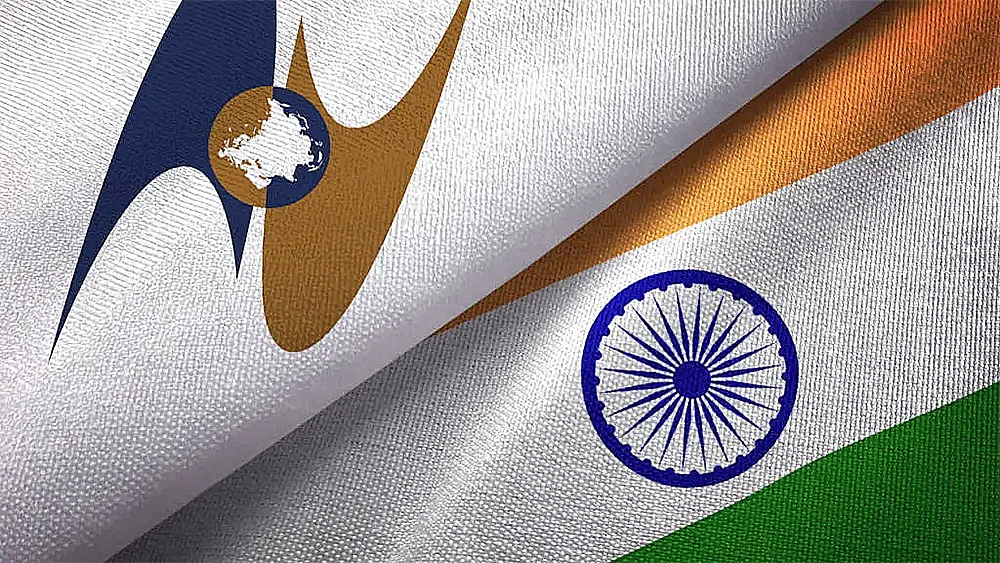
Indonesia has become a full member of BRICS, the Brazilian government announced. Information about this was posted on the official website of the country's Ministry of Foreign Affairs.
"As part of Brazil's interim chairmanship of BRICS, which began on January 1 and will last until December 31, 2025, the Brazilian government announced today, January 6, the official accession of the Republic of Indonesia to BRICS as a full member," the statement said.
It was noted that community members approved Indonesia's candidacy at the Johannesburg summit in August 2023, but postponed admission until the presidential elections a year later.
Indonesia expressed a desire to join BRICS back in 2010, when South Africa joined the organization. At that time, Moscow said that it viewed the possible expansion of the union positively and proposed defining procedures and requirements for candidates for membership.
The Brazilian Foreign Ministry noted that Indonesia, with the largest population and economy in Southeast Asia, fully complies with the organization's requirements and makes a positive contribution to deepening cooperation in the global South.
On January 1, Indonesia and several other countries (including Belarus, Kazakhstan and Uzbekistan) received the status of BRICS partners. Last year, Egypt, Iran, the UAE and Ethiopia joined the organization.
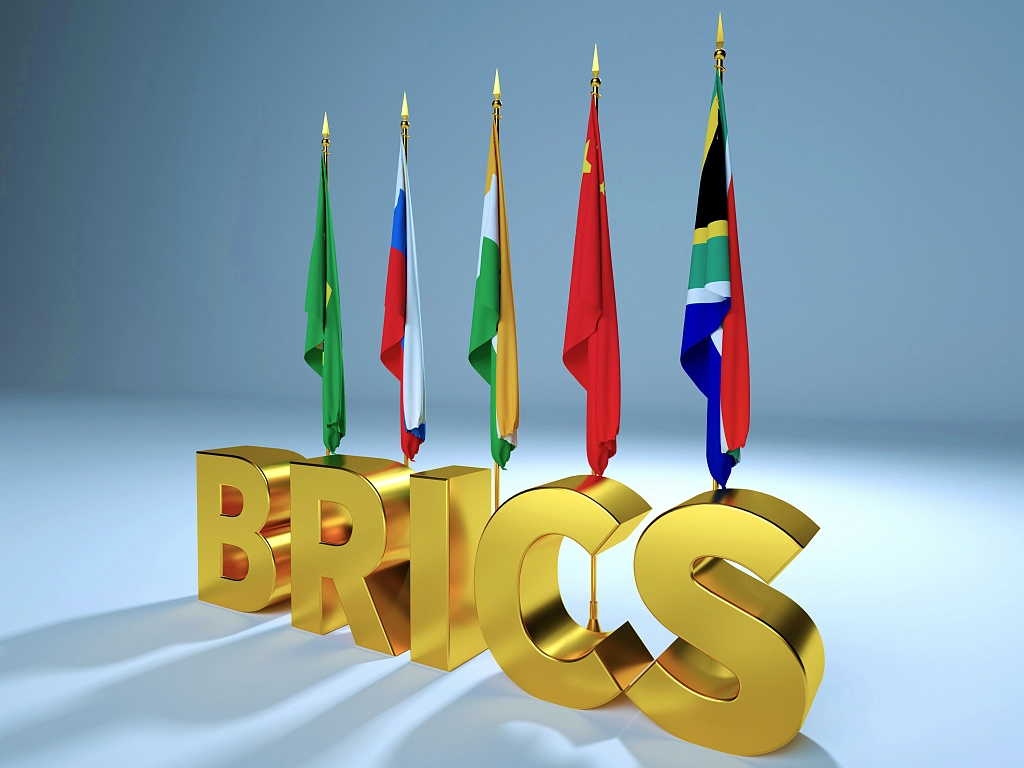


 New artıcles
New artıcles
 Useful tip
Useful tip

